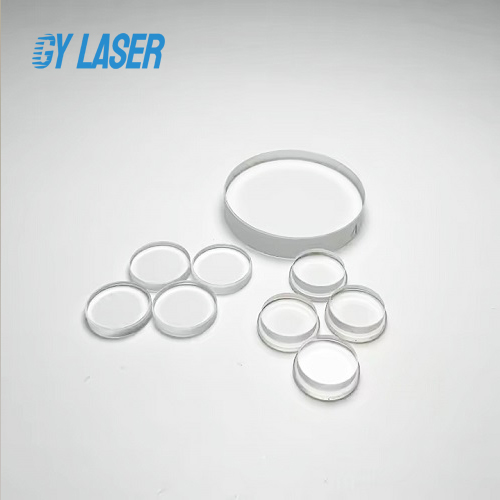News
Keeping Laser Lenses Clean: Essential for Longevity and Performance
Keeping Laser Lenses Clean: Essential for Longevity and PerformanceMaintaining clean lenses in laser systems, including laser protection lenses, is crucial for extending their lifespan and ensuring optimal performance. Laser lenses can become contaminated due to manufacturing processes or external pollutants, which can lead to increased absorption of specific laser wavelengths. Over time, this can significantly reduce the lifespan of the lenses and, in many cases, result in operational downtime due to lens damage.
The Impact of Contamination
When a lens, including laser protection lenses, absorbs more energy from a laser wavelength, it can cause uneven heating, leading to changes in the lens's reflectivity and refractive index. This phenomenon, known as the lens effect, creates a temperature gradient where the center of the lens becomes hotter than the edges. Such thermal gradients can result in irreversible thermal stress on the lens substrate, power loss during beam transmission, misalignment of the focused light spot, and premature damage to the coating layer. All of these issues can ultimately compromise lens integrity.
Proper Cleaning Practices
For lenses exposed to the air, improper cleaning methods can introduce new contaminants or even scratch the lens surface, leading to irreparable damage. Based on years of experience, it is universally acknowledged that maintaining clean optical lenses, including laser protection lenses, is paramount. Adopting good cleaning habits can significantly reduce or eliminate human-induced contamination, such as fingerprints, saliva, and other debris.
When handling optical systems, it is essential to wear finger cots or medical gloves during cleaning, disassembly, or installation to preserve lens integrity. Adhering to the recommended cleaning protocols and precautions is vital. Only specified materials should be used, such as optical lens cleaning paper, cotton swabs, reagent-grade ethanol, or high-purity alcohol. Cutting corners in cleaning or maintenance can lead to reduced lens lifespan or even permanent damage.
Preventive Measures
Common sense also plays a role in preventing lens contamination. Protecting lenses, especially laser protection lenses, from moisture, smoke, and dust is critical. When a lens is suspected of being contaminated, use a blower bulb to gently remove any surface particles. Never blow on the lens with your mouth, as the expelled air can carry oils and moisture that further contaminate the surface. If contamination persists after using a blower, specialized cotton swabs dipped in laboratory-grade acetone, ethanol, or alcohol should be employed for gentle cleaning, effectively removing most surface contaminants from laser protection lenses.
Conclusion
Dirty lenses in laser systems, including laser protection lenses, can lead to significant errors in laser output and data collection systems. By ensuring that lenses are regularly kept clean, we can undoubtedly extend the overall lifespan of the equipment. Prioritizing lens cleanliness is not just a maintenance task; it's a critical practice for anyone working with laser technology. Emphasizing proper care and cleaning of laser lenses will lead to better performance and longevity of the entire system.

No previous
NEXT:How to Choose the Right Laser Protective Goggles for Your Needs
RELATED NEWS
CATEGORIES
LATEST NEWS
CONTACT US
Name: Alex Zhang
Mobile:+8616725261381
Tel:
Whatsapp:8616725261381
Email:sales@gylaserparts.com
Add:No.20 Ziyang Road, Huanghe Road, Xiqing District, Tianjin China